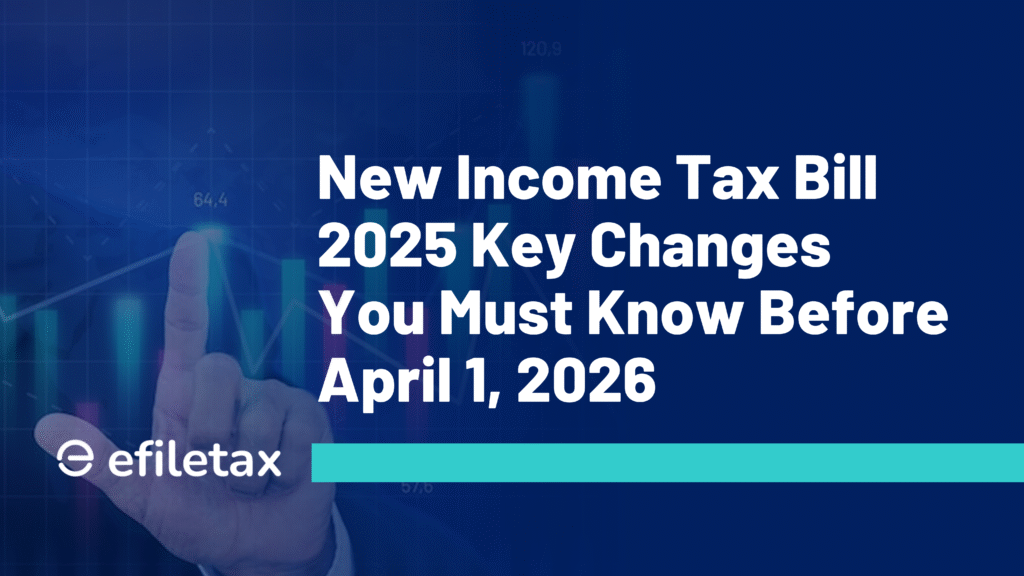
Summary
The Select Committee’s report on the Income-Tax Bill, 2025 outlines proposed reforms in taxation of digital assets, reassessment timelines, and small business reliefs. Here’s a simplified breakdown for Indian taxpayers.
Income-Tax Bill 2025: Key Takeaways from the Select Committee Report
The Income-Tax Bill, 2025 is one of the most anticipated tax reforms of the year. For Indian taxpayers, consultants, and CA firms, this report offers crucial insights into how income tax law may evolve in the coming assessment years.
Let’s break it down — in plain English.
What is the Income-Tax Bill, 2025?
The Income-Tax Bill, 2025 seeks to consolidate, simplify, and modernise the Income-tax Act, 1961. Unlike yearly Finance Acts that tweak rates or exemptions, this Bill aims to replace the entire Act with a new structure grounded in today’s digital and economic realities.
Why it matters:
- First full rewrite since 1961
- Introduces clear definitions for digital assets
- Promises ease of compliance for small businesses
- Rationalises reassessment and penalty powers
Key Recommendations of the Select Committee
Here are the critical suggestions extracted from official summaries and insider discussions:
1. Reassessment Window Shortened
Keyphrase: Income-Tax Bill 2025
- This addresses concerns of arbitrary reopening notices — a key issue in recent Supreme Court rulings (e.g. Union of India vs Ashish Agarwal, 2022).
2. Digital Assets: Clarity at Last
- The Bill introduces a specific chapter to define and tax Virtual Digital Assets (VDAs) like crypto, NFTs.
- Loss set-off rules expected to be clarified — a key ask by industry.
👉 Expert View:
A consistent framework will help businesses offering digital tokens stay compliant, and reduce arbitrary tax treatments.
3. Presumptive Taxation Limits Revised
- For small businesses: Turnover threshold for presumptive income (Sec 44AD) increased from ₹2 crore to ₹3 crore.
- For professionals (Sec 44ADA): Limit revised from ₹50 lakh to ₹75 lakh, subject to 95% digital receipts.
- Designed to boost digital compliance and reduce litigation.
4. Penalty Structure Simplified
- Intentional evasion
- Non-compliance without intent
- This aligns with global best practices and reduces discretionary penalty threats.
5. Faceless Appeal: More Safeguards
- Building on the existing faceless schemes, the Bill suggests:
- A second-level review panel before final orders
- Mandatory video hearings if taxpayer requests
This aligns with the natural justice principle highlighted in HC decisions (e.g., Delhi HC, W.P. No. 5667/2022).
What Happens Next?
Once tabled, the Income-Tax Bill 2025 may be referred for further debates in Parliament before becoming law. Key provisions may be incorporated in Budget 2026, depending on stakeholder feedback.
How Will It Impact You?
| Category | What Changes | Impact |
|---|---|---|
| Salaried Individuals | Minimal | Some relief in filing procedures and portal interface |
| Small Businesses | Yes | Higher presumptive limit means easier compliance |
| Crypto Traders | Yes | Uniform capital gains regime brings predictability |
| Tax Professionals | Major | Need to update SOPs, training for new definitions |
| Startups & Freelancers | Yes | 44ADA threshold makes digital professionals eligible |
Practical Tip for Taxpayers
Start maintaining clean digital records. The proposed law emphasises digital traceability for income, especially for presumptive and digital asset classes.
“Once enacted, the new law will shift burden of proof back on digital trails — your compliance strength will be your best defence.” – Efiletax Expert Panel
Stay Updated with Efiletax
Efiletax will track every update on the Income-Tax Bill 2025, including draft rules, implementation timelines, and portal changes.
Explore our blog on Crypto Taxation in India or get help with presumptive income filing today.
FAQs on Income-Tax Bill 2025
Is the Income-Tax Act, 1961 being repealed?
Yes, once the new Income-Tax Bill, 2025 is enacted, it will replace the current Act.
Will this impact FY 2025–26 returns?
Likely not. Most provisions are expected to apply from AY 2027–28, subject to Parliament approval.
Will the tax slabs change?
Not immediately. Slab changes are part of Finance Acts, not the structural Income-Tax Bill.